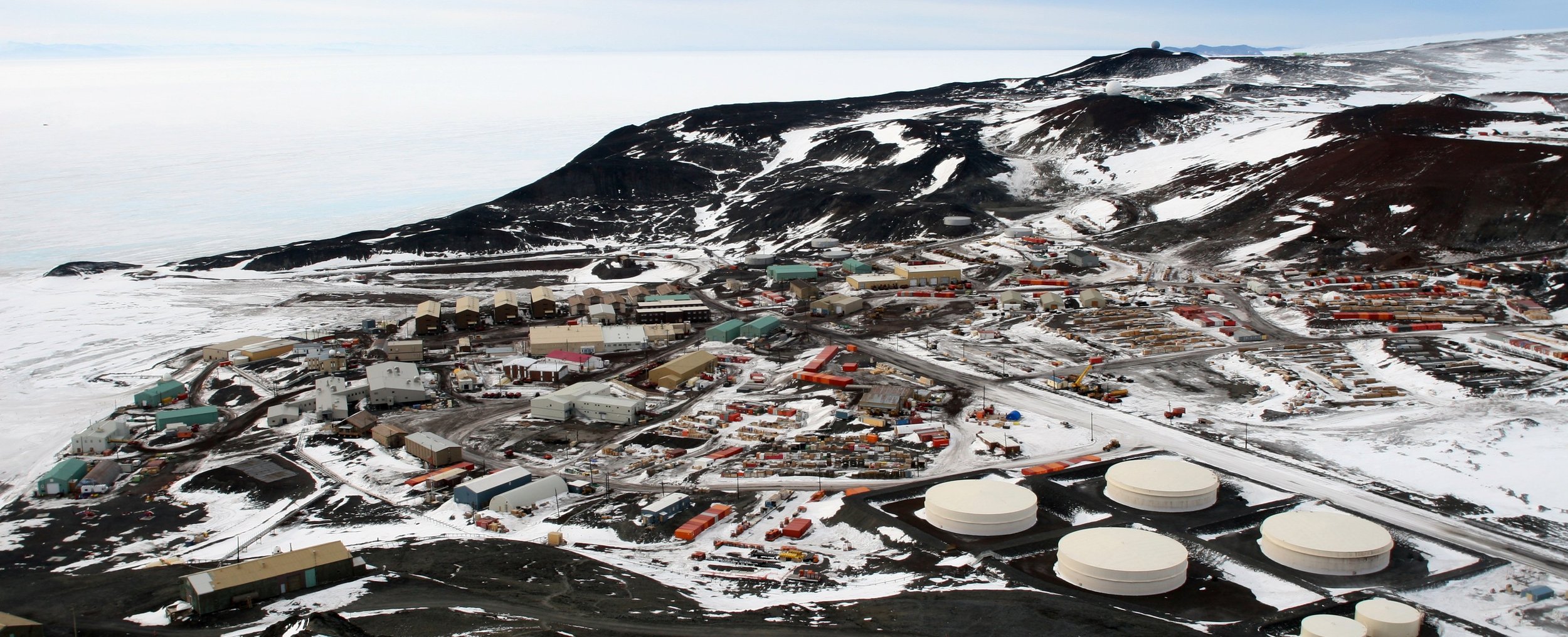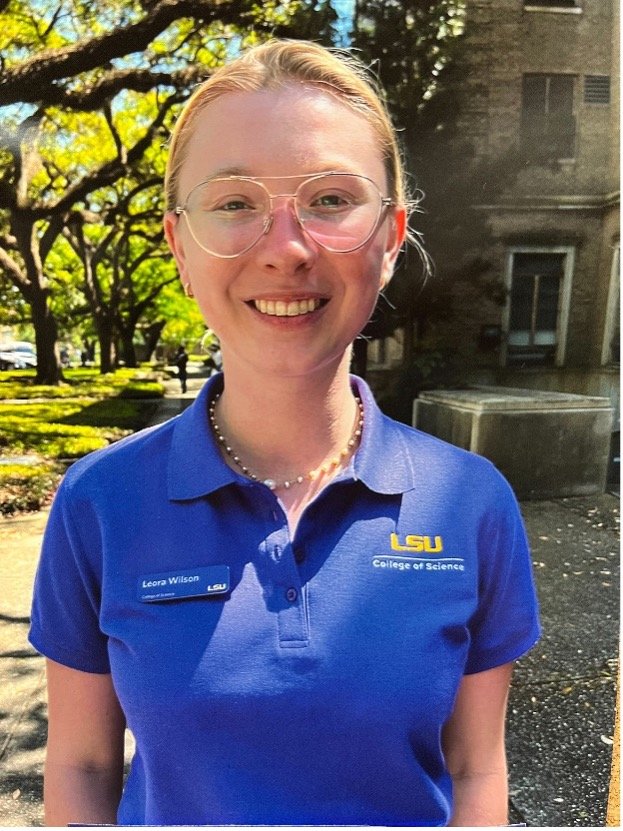College of Science Ambassador Expands Horizons with Antarctica Research
November 30, 2022

McMurdo Station on Ross Island, Antarctica, taken from Observation Hill.
– Gaelen Marsden
Leora Wilson is a senior geophysics major with an oceanography minor. She has been representing the LSU Department of Geology & Geophysics for the last two years serving as a College of Science Ambassador for the Dean’s office, along with being treasurer of the Geology Club.
For the next couple of months, Leora will be living a geophysicist’s dream as she heads to the McMurdo Station in Antarctica to conduct research alongside Dr. Peter Doran for the McMurdo Dry Valleys Long Term Ecological Research (LTER) Project.
Read below for a Q&A with Leora.
CoS: What is the purpose of this research exploration?

LSU Department of Geology & Geophysics senior, Leora Wilson
Leora: The purpose of our exploration in the Antarctic Dry Valleys is to analyze the glacial lakes, including but not limited to climate data, glacial ice formation and melting, ecology within the glacial lakes and other hydrological and ecological observations. The research group I will be a part of is the McMurdo Dry Valleys Long Term Ecological Research (LTER) Project, which is an independent research group through the National Science Foundation (NSF). I will be an assistant researcher and right-hand gal to Dr. Peter Doran, along with a dive tenant for the glacial lake divers and an overall technician for a range of different data collection devices.
Here’s the website for the project I will be a part of through NSF.
CoS: How are you able to travel to Antarctica?
Leora: For the Long-Term Ecological Research Project, I will be paid through a stipend while I am down south collecting data and doing research. I will stop in New Zealand for a few days, then to the McMurdo Station in Antarctica.
CoS: What made you interested in participating in research in Antarctica?
Leora: It is a once-in-a-lifetime experience in my mind! I am very excited to be one of the few individuals able to explore the Antarctic continent. What really caught my eye for this internship is the scuba diving in different glacial lakes for the LTER projects.
CoS: How does this endeavor differ from your previous research excursions?
Leora: This research expedition is through the National Science Foundation and the Long-Term Ecological Research Project, which is a paid internship. My past excursions have been class related or conference related through the Department of Geology and Geophysics. Last semester we had Geology in Greece where we traveled to Greece during our spring break to explore their complicated tectonic regime and ophiolites, which are relatively rare but seemingly abundant in Greece. The field camp experience over the summer of 2022 was in Colorado Springs, Colorado and lasted for 6 weeks. During this time we mapped, outlined stratigraphy, and did many other things locally in Colorado, New Mexico, and afterwards we were able to visit Arizona.
CoS: What do you hope to uncover with this experience?
Leora: This experience, I believe, will open my eyes to the more professional and official side of research. Getting exposed to individuals around the world that come together during certain times of the year to work together to help understand our Earth and the human impacts we have on delicate ecosystems and hydrological systems. I am looking to start a Master’s after I graduate this upcoming spring 2023 semester, so this opportunity may alter my interests and help me find things about myself that I would not have expected. I am extremely excited for this opportunity and cannot wait to get back and share with my friends and family about my experience.